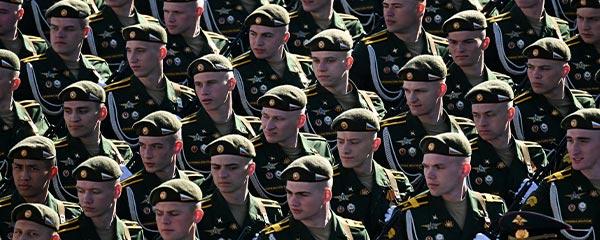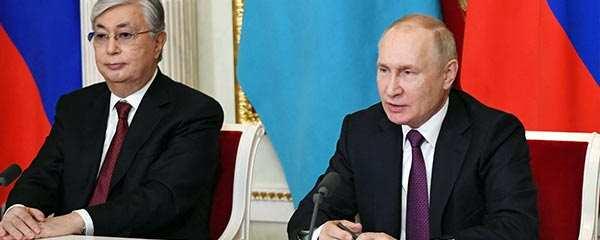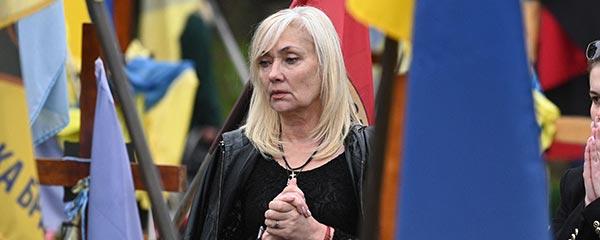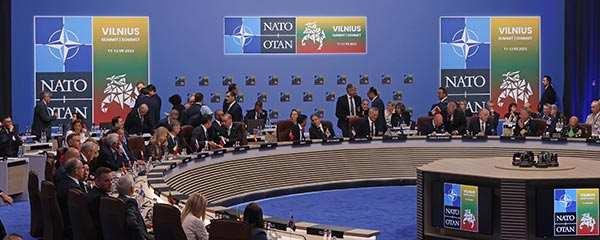As the war in Ukraine crossed the 18-month mark, we recently outlined Ukrainians’ continued support for victory on the battlefield, ambitions to join the EU and NATO, economic strains, and strong support for President Volodymyr Zelenskyy and the military.
Here, we take stock of public opinion in Russia, outlining six key insights into how life has changed for Russians during the conflict.
1. Russians Remain Bullish on Economy Despite Sanctions
Sanctions the West has imposed on Russia’s economy -- aimed at hampering the country's ability to finance its war by targeting the financial system, oil and gas exports, and thousands of oligarchs -- have not dented Russians’ economic optimism.
In 2023, record percentages of Russians believe that their local economy (56%) and living standards (46%) are improving. Perceptions of the local job market in Russia are also at their highest point on record (50% feel it is a good time to look for a new job), buttressed by relatively high confidence in Russia’s banks and financial system (56%).
While Russians remain optimistic about the direction of their economy, there are signs of strain. The proportion of people satisfied with their current living standards fell from 57% to 49% this year, and a third (34%) struggled to afford food at times, which is up from 27% in 2022. In October, Russia’s central bank raised its main interest rate for the fourth time in 2023, to 15%, in an effort to stem inflation.
2. Approval of China’s Leadership Climbs to Record Heights
One possible source for Russian economic optimism is the increasingly close relationship between Moscow and Beijing. Since the West imposed sanctions, China’s importance as an economic partner has grown ever stronger. Trade between the two countries is expected to reach a record $200 billion in 2023.
China is emerging as a victor in the battle for soft power in the eyes of millions of Russians. Approval of China’s leadership in Russia reached a record high of 71% in 2023, while Russians’ ratings of the leadership of Germany and the U.S. sank to levels not seen in nearly a decade.
3. Most Are Satisfied With Personal Freedoms, More Divided on Media
Three in four Russians (75%) are satisfied with their freedom to choose what they do with their lives. Satisfaction with freedom has been rising steadily for the past decade, reaching its highest points on record after the invasion of Ukraine.
The same cannot be said for media freedom. Despite some small changes in the past couple of years, Russians remain divided: 51% believe the media has a lot of freedom, while 48% do not.
4. War Shows No Signs of Denting People’s Daily Emotions
After months of fighting in Ukraine, there is no sign that the conflict is affecting Russians’ negative emotions. Daily rates of stress, worry and sadness have been stable since 2017, while experiences of physical pain dropped this year. This contrasts dramatically with Ukraine, where negative experiences have shot up since the war began.
Notably, men of conscription age (younger than age 30) are less likely to feel worried (20%) or sad (13%) in their day-to-day lives than the rest of the population (26% and 22%, respectively).
5. Feelings of Safety Continue to Rise
Since ���۴�ýfirst surveyed Russia in 2006, people’s perceptions of safety have risen dramatically. In 2006, a quarter (27%) of Russians felt safe walking alone at night in their area, on par with the least safe country in the world at the time, Chad (24%).
In 2023, a clear majority (71%) feel safe. While perceptions of safety dipped last year shortly after the invasion, they have rebounded to a record high, despite a series of recent drone attacks that have struck Russian cities.
6. Cracks in Military Support Begin to Show
Almost two years into the conflict, there are signs that Russia’s failure to win a war that it originally expected to last just weeks has dented confidence in the military. While overall confidence in the military (75%) remains high, it has fallen from 80% in 2022 and is back in line with prewar levels.
Bottom Line
In many respects, Gallup’s 2023 data from Russia don’t look like they are from a country at war. People are optimistic about their economy and living free and safe lives, mostly untroubled by the daily menaces of stress, worry and sadness. But behind this positivity, there are signs that cracks are beginning to show in both their current living standards and faith in the military.
To stay up to date with the latest ���۴�ýNews insights and updates, .
For complete methodology and specific survey dates, please review .
Learn more about how the works.




